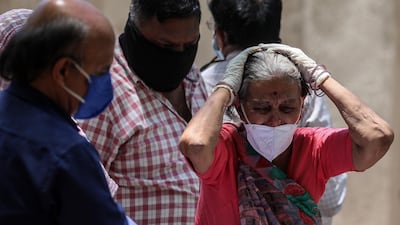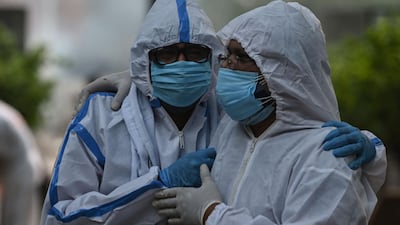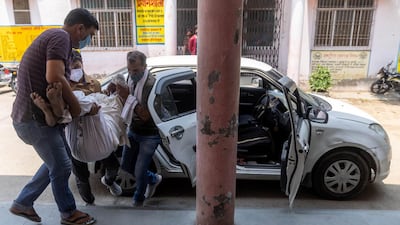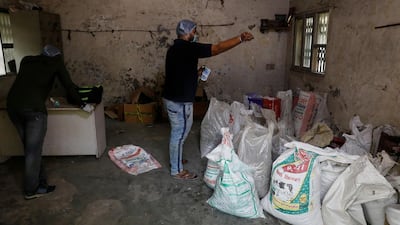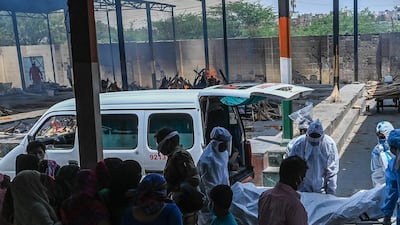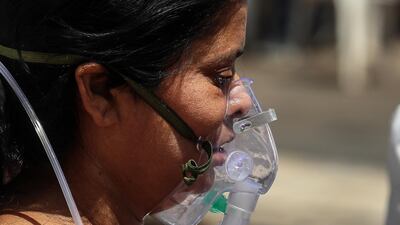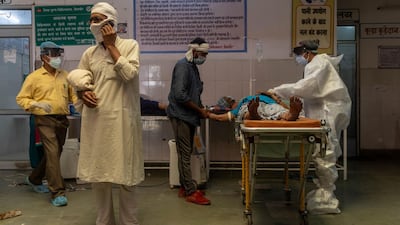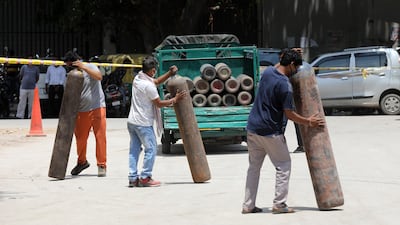India gave approval for locally-produced Covid-19 vaccines to be tested on young children.
Bharat Biotech’s inactivated virus-based Covaxin is set for Phase 2 and 3 clinical trials on children between the ages of 2 and 18 years, the Drugs Controller General of India said.
More than 500 healthy children will receive two shots, 28 days apart, to test the safety and efficacy of the vaccine.
Covaxin, like Sinopharm, is an inactivated vaccine that uses the killed version of the germ that causes the coronavirus.
Several childhood vaccines are made the same way, including the polio vaccine, flu and meningitis B, which is used in the UK.
In late March, Pfizer-BioNTech embarked on a global study to test its vaccine on children in the following age groups: six months to two years; two years to five years; and five years to 11 years.
The findings from Phase 1 will help to decide the dosage level used for later stages of the trial.
In Phases 2 and 3, the company will study the immune response in children, the tolerance level in each age group and possible side effects.
Data on the age group five to 11 is expected as early as this summer, the company said.
If the trials go well, young children could be vaccinated by the end of the year, BioNTech co-founder and chief medical officer Dr Ozlem Tureci said.
“We expect the data at the end of the summer or autumn of this year. We will then file it with the regulators and, depending on how fast they react, by the end of the year we might get approval to also immunise younger children,” she said.
The Pfizer-BioNTech vaccine was recently cleared for use in adolescents between the ages of 12 and 15 in the US after a trial showed it was safe and 100 per cent effective.
In January, Chinese state media reported that the company had completed a trial in children aged three to 17 years and found Beijing’s Sinopharm vaccine, also known as BBIBP-CorV, to be safe.
But no data was made available on the efficacy rate or side effects at the time and it has not yet been approved for use in children in China or elsewhere.
In February, Oxford/AstraZeneca began a trial to test the efficacy of its vaccine in children aged between six and 17. It was later halted because of the link between the vaccine and rare blood clots.
Experts said vaccinating children against the disease could change the course of the pandemic.
If children are unvaccinated, there is a significant risk of a resurgence of the virus.
Many children who contract Covid-19 have no symptoms, and those who become ill experience milder symptoms than adults, including a low-grade fever and cough. But a very small percentage become severely sick and even die.
Covid-19 can lead to a dangerous condition called multisystem inflammatory syndrome in children, which can affect the heart, lungs, kidneys, brain, skin, eyes, or gastrointestinal organs.
